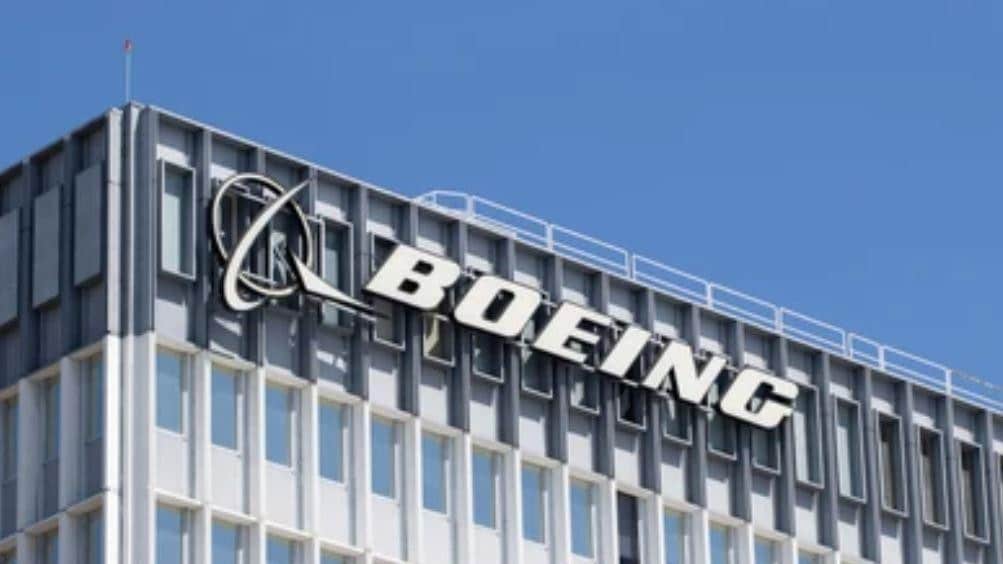
The aviation industry is a paragon of precision, where even the smallest oversight can be catastrophic. Few companies exemplify this high-stakes environment more than Boeing, which in 2024, found itself at the epicenter of a perfect storm of safety failures, regulatory scrutiny, and reputational damage.
As Boeing’s turbulent year unfolds, it underscores a vital lesson: due diligence is not merely a regulatory checkbox, but an existential imperative. According to a Department of Justice (DOJ) court filing , Boeing agreed to plead guilty to one charge of conspiracy to defraud the United States for its role in two fatal 737 Max crashes that killed 346 people and will pay up to $487 million in fines. But this was not the final resolution.
In 2024, the year began with a shocking incident: a door plug violently detached mid-flight from an Alaska Airlines Boeing 737 Max 9, exposing systemic lapses in quality control. Rapid decompression threatened the lives of passengers and crew, and subsequent investigations revealed critical bolts missing from the door plug assembly. This failure wasn’t a freak accident but a symptom of deeper issues within Boeing’s manufacturing and oversight processes.
The Federal Aviation Administration (FAA) grounded affected aircraft and launched a sweeping audit, uncovering numerous violations of quality control protocols across Boeing and its suppliers. The FAA’s findings—including inadequate manufacturing process controls and a fractured safety culture—highlighted the consequences of prioritizing production speed over meticulous oversight.
Whistleblowers and Corporate Accountability
Compounding these revelations were testimonies from whistleblowers who painted a grim picture of a corporate culture resistant to transparency and accountability. Reports of retaliation against employees who raised safety concerns suggested systemic flaws in how Boeing handled internal dissent. Tragically, John Barnett, a former Boeing quality control manager and whistleblower, was found dead in what authorities suspect was a suicide, further emphasizing the human cost of organizational dysfunction.
Boeing’s challenges extended beyond safety and culture. In December, a federal judge rejected a plea deal in a criminal fraud case related to the 737 Max crashes, criticizing lenient oversight provisions and citing concerns the agreement “required the parties to consider race when hiring the independent monitor…” over competency.” An attorney for the families of passengers who died in the crashes, who called the decision an important victory for the rights of crime victims, while the rejection leaves Boeing’s legal exposure uncertain, and families of crash victims continue to call for stricter accountability.
Boing’s penalties are also mounting. In 2021, Boeing entered into a deferred prosecution agreement (DPA) with the DOJ, agreeing to pay over $2.5 billion to resolve a charge of conspiracy to defraud the FAA. This settlement included a criminal monetary penalty of $243.6 million, $1.77 billion in compensation to Boeing’s 737 Max airline customers, and a $500 million crash-victim beneficiaries fund to compensate the heirs, relatives, and legal beneficiaries of the 346 passengers who died in the Boeing 737 Max crashes of Lion Air Flight 610 and Ethiopian Airlines Flight 302. The DOJ criticized Boeing for placing profit over candor, exposing the stark consequences of corporate malfeasance.
The financial toll has been devastating. Penalties imposed by the DOJ, along with fines from other regulatory bodies, have compounded the company’s losses. Additionally, accidents and manufacturing defects resulted in significant reparations and lawsuits. The third quarter of 2024 saw a $6 billion operating loss, exacerbated by a crippling machinists’ strike and delays in delivering the next-generation 777X aircraft.
Boeing’s losses since early 2019 now exceed $39 billion, and its credit rating teeters near junk bond status. These financial hardships underscore the urgent need for systemic reform and a comprehensive reassessment of Boeing’s business practices.
What can organizations learn from Boeing’s situation? At its core, due diligence is about creating and sustaining systems that prevent errors before they occur. For Boeing, this means implementing rigorous quality assurance measures, fostering a culture that values safety over expedience, and ensuring transparency at every level of the organization. It also necessitates a fundamental rethinking of supplier relationships, as issues at Spirit AeroSystems demonstrated the ripple effects of inadequate oversight: Spirit purportedly supplied Boeing with fuselages having numerous defects
The case of Mark A. Forkner, Boeing’s former Chief Technical Pilot for the 737 MAX program, serves as a stark example of where due diligence investigations could have made a critical difference. Forkner, a clear bad actor, was accused of knowingly and with intent to defraud, devising and intending to devise a scheme and artifice to defraud, and to obtain money and property by means of materially false and fraudulent pretenses, representations, and promises. Comprehensive executive-level background checks and a more robust internal compliance framework could have identified and mitigated the risks associated with such individuals. Enhanced due diligence investigation on individuals in critical roles would not only protect corporate integrity but safeguard the public.
The FAA’s recent steps to reclaim more direct oversight of safety analysis—a function previously outsourced to manufacturers—is a promising development. However, true progress requires Boeing to embrace accountability as a cornerstone of its operations. This includes empowering employees to report issues without fear of reprisal and embedding due diligence into every facet of its processes.
The stakes for Boeing’s transformation could not be higher. The company’s survival hinges on its ability to restore trust among regulators, airlines, and the flying public. Doing so requires more than damage control; it demands a long-term commitment to rebuilding its foundation on the principles of integrity, transparency, and excellence.
The Boeing scandal illustrates the dangers of prioritizing short-term profit over long-term gain, as the company concealed critical safety information about its 737 Max airplane to save time and costs. This short-sighted approach not only jeopardized public safety and eroded trust but also led to severe legal, financial, and reputational consequences for Boeing. By focusing on immediate gains at the expense of transparency and responsibility, the company caused harm not only to itself, but to the aviation industry, regulators, and general public.
The scandal underscores the importance of balancing short-term success against long-term ethical practices and accountability. Boeing, however, is not alone in prioritizing profit over integrity, many companies skimp on expenditures related to due diligence, compliance, and full-time local hires to save current costs and please shareholders, oblivious to or ignoring the risk and long-term costs.
As Boeing navigates these turbulent skies, the broader aviation industry must heed the lessons of its failures. In a field where lives are at stake, due diligence is not an option—it is the bedrock of safety, reliability, and resilience. Working with an expert investigative firm with global reach like Infortal can provide the robust systems, expertise, and vigilance required to identify executive hire risks, ensure compliance, and support organizations in building a culture of accountability and trust..



